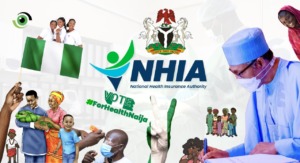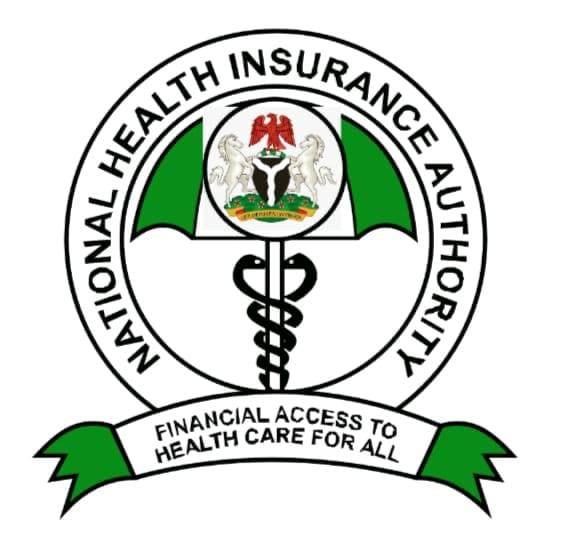Lagos, Nigeria – With the recent signing of the health insurance bill into law, the National Health Insurance Authority (NHIA) has expressed confidence’s ability to achieve Universal Health Coverage (UHC) by 2030. Speaking at a stakeholders’ forum, Dr. Bethuel-Kasimu Abraham, Deputy General Manager of the NHIA’s Ikeja office, emphasized the Authority’s dedication to extending health insurance coverage to alls.
Dr. Abraham highlighted that the new legislation not only makes health insurance mandatory but also provides states with the means to establish their own health insurance schemes. This move is seen as a crucial step toward reaching the UHC target by 2030. He further revealed that the NHIA would soon release updated guidelines that grant the Authority the power to investigate cases and penalize non-compliant healthcare providers.
“For Health Maintenance Organizations (HMOs) that consistently violate guidelines or fail to meet their obligations, we will delist them,” stated Dr. Abraham. “Many HMOs are taking on more than they can handle. HMOs that burden enrollees without providing quality services will face consequences. We encourage enrollees to report any HMO that fails to meet expectations, and we will focus on educating HMOs about delivering quality service.”
Olufemi Akingbade, Zonal Coordinator of the NHIA, emphasized the importance of trust-building between federal and state authorities to achieve the 2030 UHC goal. Akingbade urged the government to enforce the consolidation of funds into a single pool, as the current fragmented pools at the state level hinder effective national health insurance.
“For now, we have a fragmented pool of funds. Each state is supposed to take care of their residents and citizens, so the pools are fragmented,” noted Akingbade.
Taking the participants on expanding coverage of the NHIA, Assistant General Manager, Programme Unit, Ikeja, Chika Amahalu, explained that the forum was to bridge the gap between the Authority and stakeholders for better health services to the citizenry.
“Effective communication and collaboration with stakeholders are essential to ensure improved health services for the population,” Amahalu stated. She emphasized the significance of the Group, Individual, and Family Social Health Insurance Programme (GIFSHIP) in achieving comprehensive health insurance coverage for every, ensuring accessible and affordable healthcare for all.
NHIA: Health Insurance Bill Signed into Law

The signing of the health insurance bill into law is a significant milestone for Nigeria, as it paves the way for the realization of Universal Health Coverage (UHC) by 2030. With the commitment of the National Health Insurance Authority (NHIA) and the collaboration of stakeholders, the vision of providing accessible and affordable healthcare for alls is becoming more attainable.
During a stakeholders’ forum held, Dr. Bethuel-Kasimu Abraham, Deputy General Manager of the NHIA’s Ikeja office, expressed optimism regarding the achievement of UHC by 2030. He assured attendees that the NHIA was diligently working to ensure that alls are covered under the health insurance net.
With the newly enacted legislation, health insurance has become mandatory, and states now have the opportunity to establish their own health insurance schemes. Dr. Abraham explained that this development not only provides a framework for comprehensive coverage but also empowers states to actively contribute to the country’s UHC objectives.
Furthermore, the NHIA is taking decisive steps to enforce compliance and improve the quality of services provided by Health Maintenance Organisations (HMOs). Dr. Abraham emphasized the importance of holding HMOs accountable for their actions, stating, “For Health Maintenance Organisations (HMOs) that have consistent trends of either owing providers or not operating within the ambit of the guidelines, we will delist. A lot of HMOs are biting more than they can chew. HMOs that place a burden and don’t render quality services to enrollees will be derisked.”



